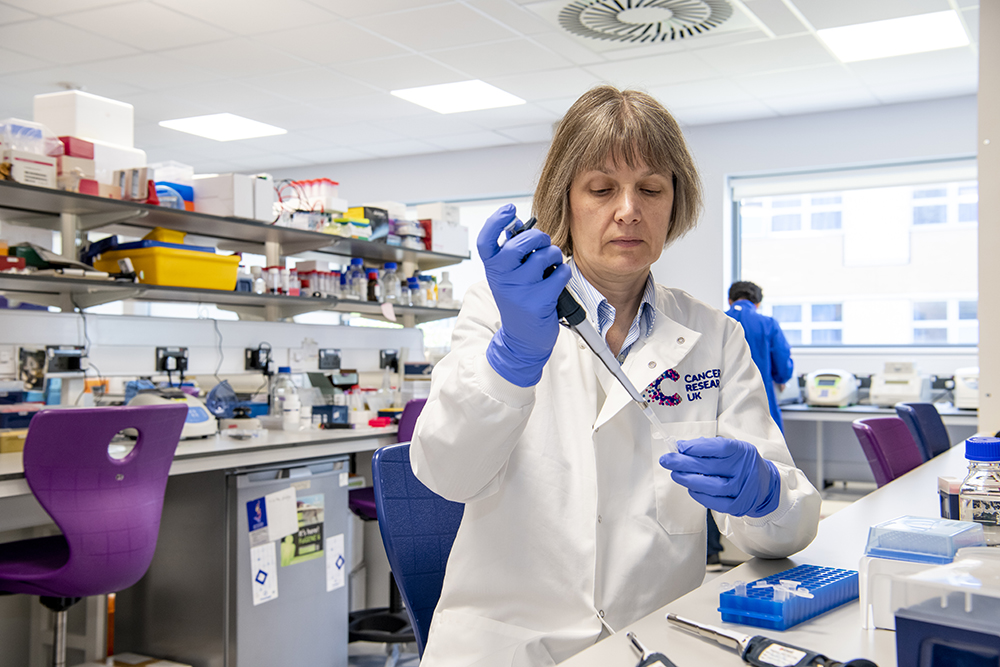Professor Sally Ward wins international prize for breakthroughs in antibody therapies

Professor Sally Ward, Director of Translational Research at the Centre for Cancer Immunology (CCI) within the University of Southampton’s Faculty of Medicine, has been awarded the International Society of Molecular Recognition Award in Affinity Technology.
This highly prestigious prize recognises her pioneering work in antibody engineering, which has directly led to multiple approved antibody-based therapies for autoimmunity and infectious disease. These diseases include the potentially debilitating neurological disease, myasthenia gravis.
The award was presented to Professor Ward at the biennial meeting of the society in Raleigh, NC, USA. Past recipients include global leaders in the field, such as the 2024 Nobel Laureate, David Baker.
Transforming lives through antibody engineering
Professor Ward’s career has focused on understanding and manipulating the molecular mechanisms that control antibody transport and lifespan in the human body. Her discoveries have changed how antibody-based medicines are delivered, and also how disease-causing antibodies can be removed.
Two of her major scientific contributions include:
- Prolonging antibody half-life
Sally and her team identified the neonatal FC receptor (FcRn) as a key molecular regulator of antibody levels in the body. This led to the engineering of therapeutic antibodies for longer persistence in the body (half-life extension), reducing the need for frequent dosing.
“Half-life extension was used to develop a long-lived, prophylactic treatment for respiratory syncytial virus (RSV) in infants,” explains Sally. Infants are particularly vulnerable to RSV infection, which can be fatal in premature babies and at-risk toddlers.
The half-life extension technology was licensed to Medimmune (subsequently taken over by AstraZeneca), leading to the development of Beyfortus (nirsevimab), which is now recommended in the U.S. for all babies born during the RSV season, as well as for at-risk toddlers. Unlike previous treatments, which require monthly injections, Beyfortus offers around six months of protection with a single dose.
- Reducing harmful antibody levels
In parallel, Sally’s team developed ways to inhibit FcRn to reduce harmful antibody levels in autoimmune diseases. This led to the development of treatments for conditions where antibodies attack the body, such as myasthenia gravis, immune thrombocytopenia (ITP)—a disorder that destroys platelets—and chronic inflammatory demyelinating polyneuropathy (CIDP). All of these diseases can be life-threatening and may lead to debilitating disability.
The resulting drug, Vyvgart (efgartigimod), has been approved in the US and EU and is currently under review by NICE in the UK. It is now in clinical trials for other conditions, including lupus, Sjögren’s syndrome, and Graves’ disease.
From Cambridge to Texas to Southampton
Professor Ward began her research career in Cambridge, where as a senior research fellow, she carried out work on antibody repertoires in the laboratory of Sir Greg Winter. From 1990-2018 she held faculty positions at UT Southwestern Medical Center (Dallas, Texas) followed by Texas A&M University. In 2018, she and her husband, Raimund Ober, a fellow scientist and bioengineer, were appointed as Professors in the Centre for Cancer Immunology.
Her contributions to the field of immunology and antibody-based therapeutics have previously been recognised by her being elected as Fellow of the Royal Society (2022), and her work has been highlighted in both The Sunday Times and Southern Daily Echo.
Professor Ward now leads a team at the University of Southampton that continues to develop innovative antibody-based treatments for cancer, autoimmune disorders, and beyond.